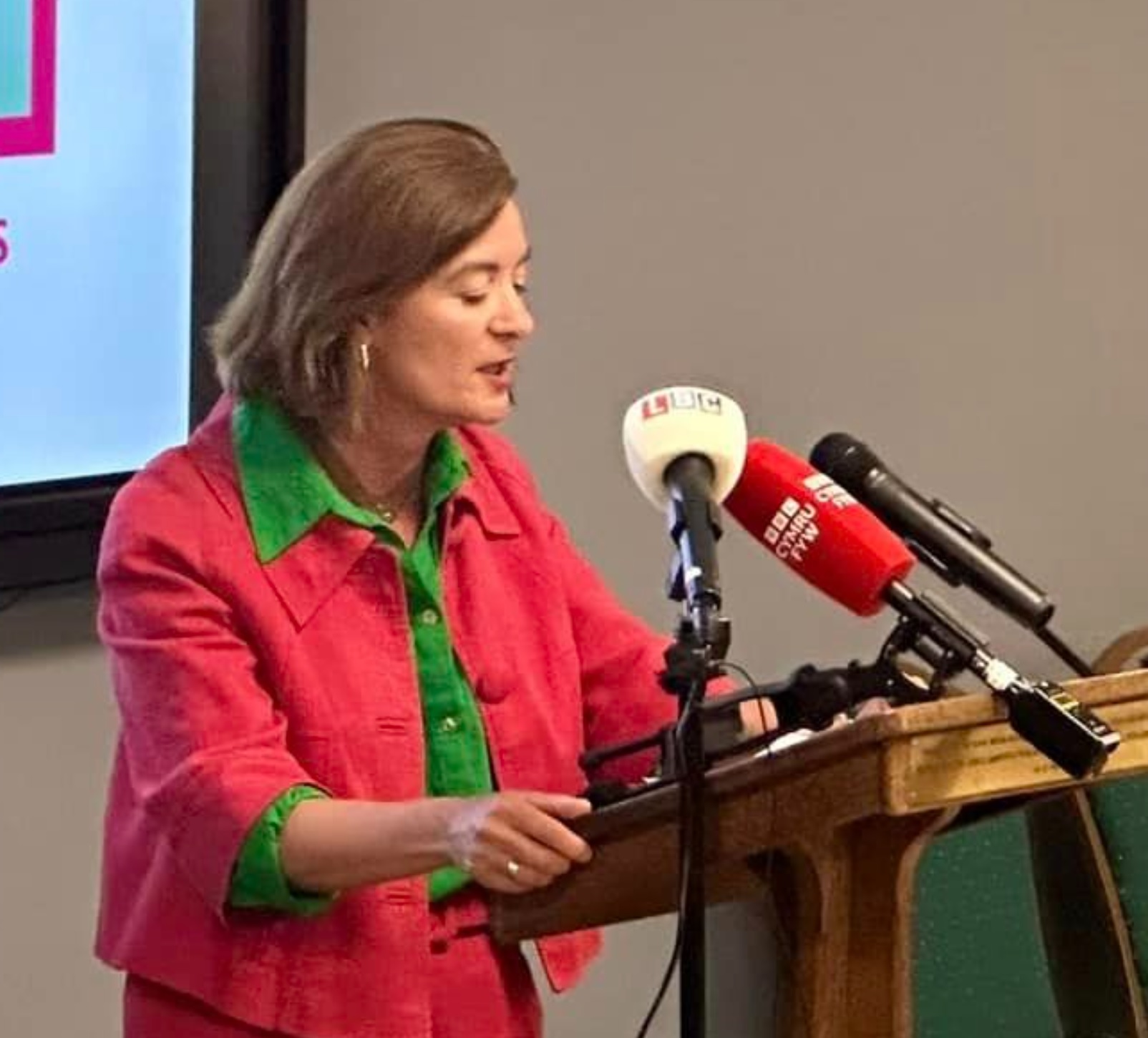Business
St Davids adventure company calls for #SaveOutdoorEd support

ST DAVIDS-BASEED outdoor education company TYF is urging people to support the #SaveOutdoorEd campaign, which aims to get the government to take action to save the outdoor education sector during the Covid-19 pandemic.
The campaign has led to a number of petitions and calls from MPs for the government to address the damage being done to the outdoor education sector by Covid-19, as well as the lost opportunities for people to get outdoors, boost their mental and physical health, learn about the natural world and gain skills and confidence.
Supporters of #SaveOutdoorEd are calling for a clear roadmap for resuming school trips, along with financial support for the sector, where Covid-19 restrictions have endangered livelihoods.
Some progress is being made. A new all-party parliamentary group for Outdoor Learning was recently formed, led by Aberconwy MP Robin Millar and Westmorland and Lonsdale MP Tim Farron, who recently urged the government to review its ban on residential trips.
TYF was founded in 1986 and was the first company to introduce coasteering as a commercial activity. It welcomes around 40 schools each season – approximately 200 children a week, and employs over 30 people each year, including seasonal instructors and year-round staff in its office and its St Davids shop.
Its activities are not only about boosting physical and mental fitness: the company also has a strong environmental focus and builds education about the environment and the natural world into its activities. Its high adrenaline activities are preceded by a “mindful minute” in which participants tune into their surroundings.
In 2014 TYF became one of the first certified B Corps in the UK in recognition of its social and environmental performance. The company is also ocean literate and carbon literate, meaning it promotes an understanding of the oceans and our influence on them, and an awareness of the carbon dioxide costs and impacts of everyday activities, working to motivate people to reduce emissions.
Bonnie Middleton, marketing manager, TYF, says the loss of outdoor education during 2020 has had multiple effects.
“We are not only concerned about protecting jobs in the sector; we’re also aware of the lost opportunities to raise awareness of environmental issues at a time when the climate is in crisis,” she said. “We cannot miss another opportunity to engage the younger generation with nature as this could have a detrimental effect on their commitment to making positive changes in their lives. On top of that, people have lost valuable opportunities to boost their resilience, optimism and mental health through time spent outdoors. Outdoor activities have been shown to have multiple benefits, including lowering blood pressure, boosting self-esteem and relieving stress and anxiety. People need these now more than ever, and we’re eager to be able to welcome people back and resume our activities in a safe and supportive environment.”
With this in mind, TYF has revised its procedures to ensure all equipment is disinfected between uses, and that social distancing it built into its travel arrangements and activities.
“We’re confident we can keep people safe on our trips,” said Bonnie. “We now hope people will get behind the #SaveOutdoorEd campaign and urge the government to review its rules about overnight trips and to take action to protect jobs in outdoor education. Outdoor education staff and the activities they provide have a hugely positive impact on people and the environment, and we want that to continue.”
Anyone wanting to support the campaign can sign the petition urging a revision of Department for Education guidance at: https://petition.parliament.uk/petitions/330559
Business
Tax deadline for self-employed and landlords as digital system goes live in April

Quarterly online reporting to become mandatory for higher earners under HMRC shake-up
MORE than 860,000 sole traders and landlords across the UK are being urged to prepare now for major changes to the way they report tax, with new digital rules coming into force in just two months.
From April 6, thousands of self-employed workers and property landlords earning over £50,000 a year will be required to keep digital records and submit quarterly income updates to HM Revenue & Customs under the Government’s Making Tax Digital scheme.
The changes form part of a wider overhaul designed to modernise the tax system and reduce errors.
Instead of submitting figures once a year, those affected will use approved software to record income and expenses throughout the year and send short quarterly summaries to HMRC. Officials stress these are not extra tax returns, but updates intended to spread the workload and avoid the usual January rush.
Free and paid software options are available, with the system automatically generating the figures needed for submission.
At the end of the tax year, users will still file a Self Assessment return, but most of the information will already be stored digitally.
Craig Ogilvie, HMRC’s Director of Making Tax Digital, said the move should make tax reporting simpler.
He said: “With two months to go until MTD for Income Tax launches, now is the time to act. The system is straightforward and helps reduce errors. Thousands have already tested it successfully.
“Spreading your tax admin throughout the year means avoiding that last-minute scramble to complete a tax return every January.”
More than 12,000 quarterly updates have already been submitted during a voluntary trial.
Phased rollout
The new rules will be introduced gradually:
• From April 2026 – those earning £50,000 or more
• From April 2027 – those earning £30,000 or more
• From April 2028 – those earning £20,000 or more
To ease the transition, HMRC says it will not issue penalty points for late quarterly submissions during the first 12 months.
After that, a points system will apply, with a £200 fine only triggered once four late submissions are reached.
Anyone unable to use digital tools for genuine reasons can apply for an exemption.
Tax agents and accountants are advising clients to prepare early to avoid last-minute problems.
Further guidance, webinars and sign-up details are available via GOV.UK.
Business
Bid to convert office space into chocolate factory, salon and laundrette

A CALL for the retrospective conversion of office space previously connected to a Pembrokeshire car hire business to a chocolate factory, a beauty salon and a laundrette has been submitted to county planners
In an application to Pembrokeshire County Council, Mr M Williams, through agent Preseli Planning Ltd, sought retrospective permission for the subdivision of an office on land off Scotchwell Cottage, Cartlett, Haverfordwest into three units forming a chocolate manufacturing, a beauty salon, and a launderette, along with associated works.
A supporting statement said planning history at the site saw a 2018 application for the refurbishment of an existing office building and a change of use from oil depot offices to a hire car office and car/van storage yard, approved back in 2019.
For the chocolate manufacturing by ‘Pembrokeshire Chocolate company,’ as part of the latest scheme it said: “The operation comprises of manufacturing of handmade bespoke flavoured chocolate bars. Historically there was an element of counter sales but this has now ceased. The business sales comprise of online orders and the delivery of produce to local stockist. There are no counter sales from the premises.”
It said the beauty salon “offers treatments, nail services and hairdressing,” operating “on an appointment only basis, with the hairdresser element also offering a mobile service”. It said the third unit of the building functions as a commercial laundrette and ironing services known as ‘West Coast Laundry,’ which “predominantly provides services to holiday cottages, hotels and care homes”.
The statement added: “Beyond the unchanged access the site has parking provision for at least 12 vehicles and a turning area. The building now forms three units which employ two persons per unit. The 12 parking spaces, therefore, provide sufficient provision for staff.
“In terms of visiting members of the public the beauty salon operates on an appointment only basis and based on its small scale can only accommodate two customers at any one time. Therefore, ample parking provision exists to visitors.
“With regard to the chocolate manufacturing and commercial laundrette service these enterprises do not attract visitors but do attract the dropping off laundry and delivery of associated inputs. Drop off and collections associated with the laundry services tend to fall in line with holiday accommodation changeover days, for example Tuesday drop off and collections on the Thursday.
“With regard to the chocolate manufacturing ingredients are delivered by couriers and movements associated with this is also estimated at 10 vehicular movements per week.”
The application will be considered by county planners at a later date.
Business
First Minister criticised after ‘Netflix’ comment on struggling high streets

Government announces 15% support package but campaigners say costs still crushing hospitality
PUBS, cafés and restaurants across Wales will receive extra business rates relief — but ministers are facing criticism after comments suggesting people staying home watching Netflix are partly to blame for struggling high streets.
The Welsh Government has announced a 15% business rates discount for around 4,400 hospitality businesses in 2026-27, backed by up to £8 million in funding.
Announcing the package, Welsh Government Finance Secretary Mark Drakeford said: “Pubs, restaurants, cafés, bars, and live music venues are at the heart of communities across Wales. We know they are facing real pressures, from rising costs to changing consumer habits.
“This additional support will help around 4,400 businesses as they adapt to these challenges.”
The announcement came hours after Eluned Morgan suggested in Senedd discussions that changing lifestyles — including more time spent at home on streaming services — were contributing to falling footfall in town centres.
The remarks prompted political backlash.
Leader of the Welsh Liberal Democrats, Jane Dodds, said: “People are not willingly choosing Netflix over the high street. They are being forced indoors because prices keep rising and wages are not.
“Blaming people for staying at home is an insult to business owners who are working longer hours just to survive.”
Industry groups say the problem runs deeper than consumer behaviour.
The Campaign for Real Ale (CAMRA) welcomed the discount but warned it would not prevent closures.
Chris Charters, CAMRA Wales director, said: “15% off for a year is only the start. It won’t fix the unfair business rates system our pubs are being crushed by.
“Welsh publicans need a permanent solution, or doors will continue to close.”
Across Pembrokeshire, traders have repeatedly told The Herald that rising energy bills, wage pressures and rates — rather than a lack of willingness to go out — are keeping customers away.
Several town centres have seen growing numbers of empty units over the past year, with independent shops and hospitality venues reporting reduced footfall outside the main tourist season.
While ministers say the relief balances support with tight public finances, business groups are calling for wider and longer-term reform.
Further debate on rates changes is expected later this year.

-

 Crime2 days ago
Crime2 days agoSex offender jailed after living off grid in Pembrokeshire and refusing to register
-

 Health15 hours ago
Health15 hours agoHealth board targets rise in steroid and gym drug use across west Wales
-

 News3 days ago
News3 days agoPrincess of Wales visits historic Pembrokeshire woollen mill
-

 Crime7 days ago
Crime7 days agoPembroke man accused of child sex offences sent to Swansea Crown Court
-

 Health5 days ago
Health5 days agoDoctor struck off after sexual misconduct findings at Withybush Hospital
-

 Crime17 hours ago
Crime17 hours agoTeacher injured and teenager arrested for attempted murder at Milford Haven School
-

 Community7 days ago
Community7 days ago50s women threaten legal action over pension compensation refusal
-

 Crime3 days ago
Crime3 days agoHakin man’s appeal delayed again as Crown Court seeks guidance on insurance law























